Classics 301B
Horace's Odes
March 18, 2025

Group Projects (next Tuesday, 3-25)
Quintus Horatius Flaccus: 65 BCE-8 CE (Apulia); father a freed slave (small landowner & auctioneer); well-educated (Rome, Athens); social stigma (“from humble origins I rose / to power”, Ode 3.30.12-13); joins forces of Brutus & commands legion (pro-Republicans defeated @ Battle of Philippi, 42 BCE)
- Horace returns to Rome (41 BCE), pardoned by Octavian, joins circle of Maecenas (ca. 38 BCE), personal relationship with Vergil
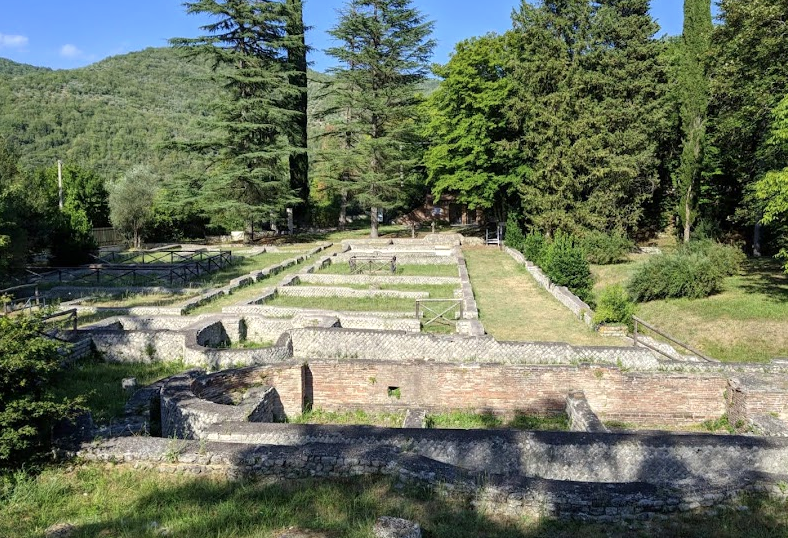
Horace's villa (near Licenza, Italy)
- Maecenas gives Horace farm in Tibur (modern Tivoli); farm emblematic of "modest" Epicurean life – TOUR (Part I)
- Odes (Carmina): first 3 books published in 23 BCE (earliest written ca. 30 BCE; cf. Aeneid, ca. 30-19 BCE); Book 4 published ca. 10 years later; personal vs. public voice, lyric poetry vs. propaganda
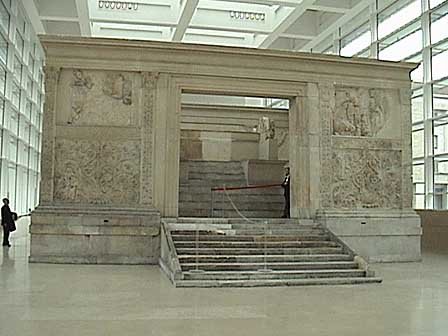
Ara Pacis Augustae (9 BCE)
- Odes: lyric poems after archaic Greek lyric poetry, esp. Alcaeus (7th BCE, Lesbos); cf. Catullus & Sappho; Alcaeus – nugatory, personal pieces (esp. symposiastic: drinking, banqueting) + stormy politics of Lesbos (personal poetry with public dimension)
- Horace continues Alexandrian tradition of Callimachus et al.; complex aesthetic – Greek & Roman worlds merged, as mythic, political & personal; poet of many personae ("masks")
- poetic progam: claiming shelf-space in bilingual library of lyric poetry (Maecenas as arbiter of canonicity, Ode 1.1), Ode 1.35-6 quodsi me lyricis uatibus inseres, ["include/insert me/my papyrus text"] / sublimi feriam sidera uertice, "But if you rank me among the lyric bards, / I will strike the stars with my exalted head"
- collection's novelty: Ode 3.30.13-14 princeps Aeolium carmen ad Italos / deduxisse modos, "the first to have spun Aeolic song / into Italian verse" (first Roman lyric poet?); bold claim of success/immortality, "A monument more lasting than bronze . . . I will not wholly die . . . as long / as a Roman priest ascends the Capitoline" (3.30.1ff.)
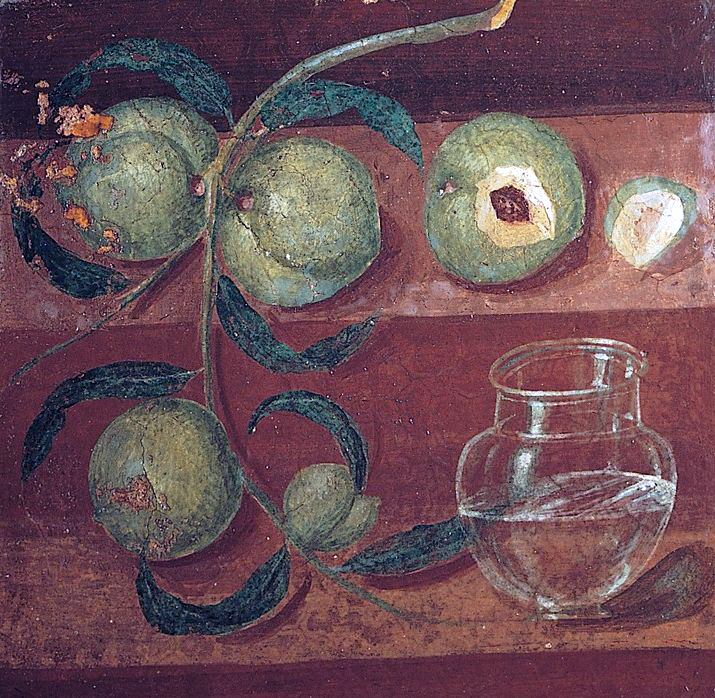
- Epicurean themes: basic tenets of “Lite” Epicureanism (cf. scientific Epicureanism of Lucretius), esp. life’s brevity, fleeting nature of pleasure, call to enjoy moment & shun anxiety over future, e.g. Ode 1.11.8 carpe diem (“harvest the day”, when it’s ripe for the picking, i.e. right occasion & time)
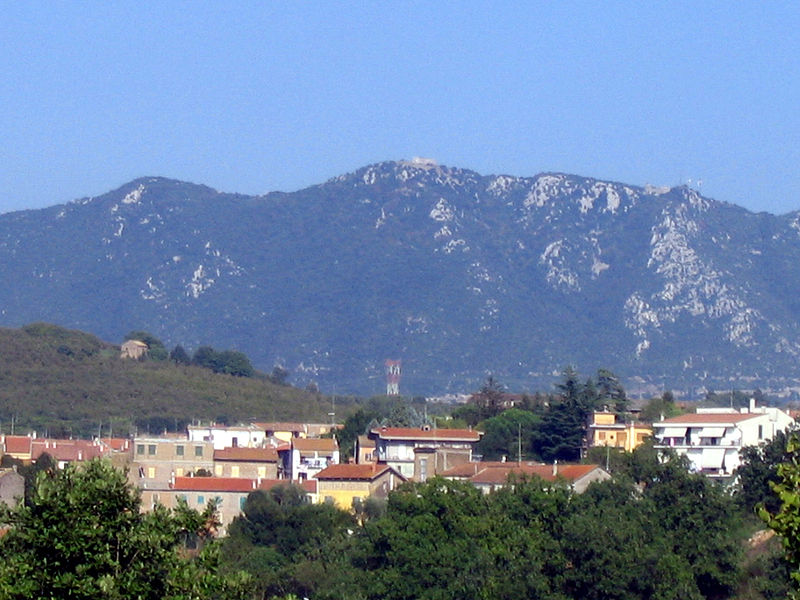
Mt. Soracte, Italy
Horace, Ode 1.9 (the Soractean ode)
See how the snow drifts deep and white
on Soracte’s slopes, and its weight
strains the woods, and glacial
streams snap in the cold.
Thaw winter out, piling logs high
on the fire, and spirit up from the cellar
a magnum, Thaliarchus, [Greek, "leader of festivities"]
of Sabine Beaujolais,
and leave the rest to the gods. When they
lay brawling winds to rest on the water,
cypresses shudder no more,
nor ancient ash trees.
Forget about tomorrow, count as profit
however many days Fortune allots,
never scorn sweet loves and dances
while you’re still a boy
blooming green, before grey hair
shadows your life. On the parade grounds [Campus Martius]
couples meet in the evening now,
whisper in the plazas,
a girl’s welcome laughter betrays her
hiding in the a corner, a bracelet snatched
from an arm, or a ring
from a poorly resisting finger.
[contrasts & tensions: cold/warm, winter/summer, today/tomorrow, old/young, mortals/immortals > snapshot of present moment – closing stanza?]
.jpg)
Horace medallion, 4th-5th century CE
- programmatic Ode 1.1: priamel – rhetorical device to highlight personal preference = vatic poet’s position in society (vates = inspired poet/prophet/priest vs. poeta) & claim place in Greco-Roman canon of lyric poets
Horace, Ode 1.1.1ff.
Maecenas, descendant of ancestral kings,
my patron and the glory of my life:
There are those who delight in collecting
Olympic dust on the course; their burning wheels
Just graze the posts, and the noble palm branch
lifts them up, lords of the earth, to the gods.
One man is pleased if the milling Roman crowds
elevate him to the three high magistracies;
another, if he can store in his granaries
everything swept from Libyan threshing floors . . .
[other foils: farmer, merchant, slacker/hedonist, soldier, hunter]
. . . The ivies though, grace of a poet’s brow,
mix me with the gods, and the cool grove,
the light chorus of the fauns and nymphs
unmill me from the masses—if Euterpe
does not stop her flutes, if Polyhymnia
will not refuse to tune her Lesboan lyre.
But if you rank me among the lyric bards, [lyricis vatibus]
I will strike the stars with my exalted head. [cf. sphragis ("seal") poem's forecast of immortality, Ode 3.30]
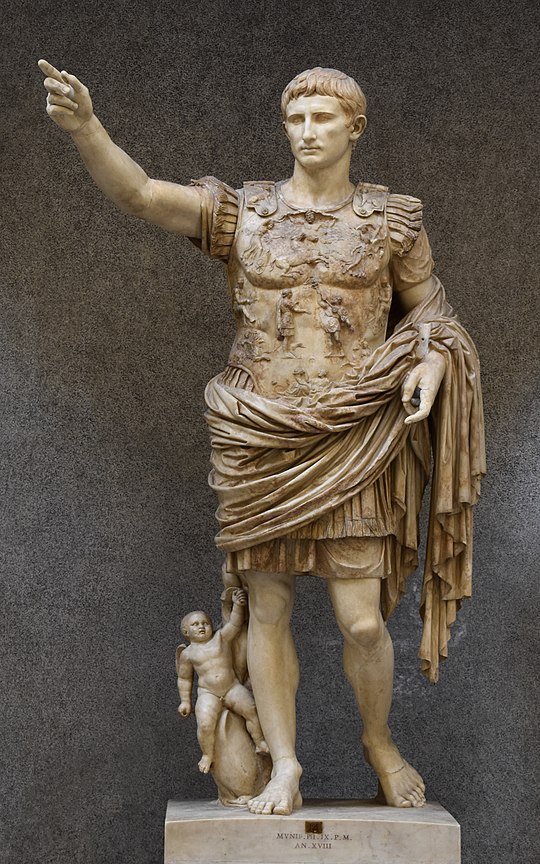
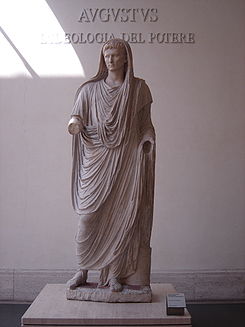
- Augustan poet-propagandist/"court-poet": Ode 3.6, last of first 6 “Roman Odes” of Book 3 ("Make Rome Great Again") – early reign of Augustus & proposed moral reforms regulating marriage, morality, etc. (image of autocratic savior)
- vates thunders about religion (rebuilding temples: "You shall atone, for the crimes / of your ancestors, Roman . . ., 3.6.1ff.) & moral decay (marriage & family, nostalgic ideal of warrior/farmer)
Horace, Ode 3.6.16ff. (degraded present, idealized past)
A generation fertile in sin has befouled
marriage first, and then, family and home
from this source the calamitous tide
has overwhelmed our nation's people.
The grown girl loves to learn Greek dances
and to be schooled in other similar skills,
already obsessed with illicit affairs
down to her delicate fingernails . . .
The youth who dyed the sea with Punic blood
were not born from parents this these . . .
they were rugged farmer soldiers, trained
to break up the earth with Sabine hoes,
and at a word from their strict
mothers, to cut and carry bundles
of firewood . . .
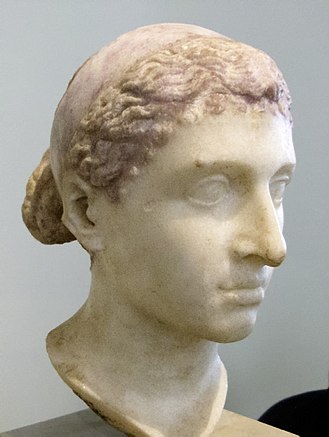
Cleopatra VII (mid-1st century BCE)
- more nuanced (?) voice: nunc est bibendum/“the Cleopatra Ode” (Ode 1.37, 30 BCE, after Antony's suicide & damnatio memoriae) – drunken/mad Cleopatra & "hideous, diseased / soldiers" (cf. orientalism of shield of Aeneas), e.g. "the insane queen / plotted ruin for the Capitoline, / doom for the empire" & distortions of Battle of Actium vs. epic simile for Octavian (hawk/dove, hunter/hare)
Horace, Ode 1.37.25-32 (Cleopatra's suicide)
She had the courage to cast a calm eye on her
crumbling realm, the resolve to pick up
scaly snakes and absorb
their black poison into her body,
steelier when she had resolved on death,
too much a woman to allow her enemies
to parade her, a queen no longer,
in an insulting death. [cf. Dido]
GROUPS






.jpg)


